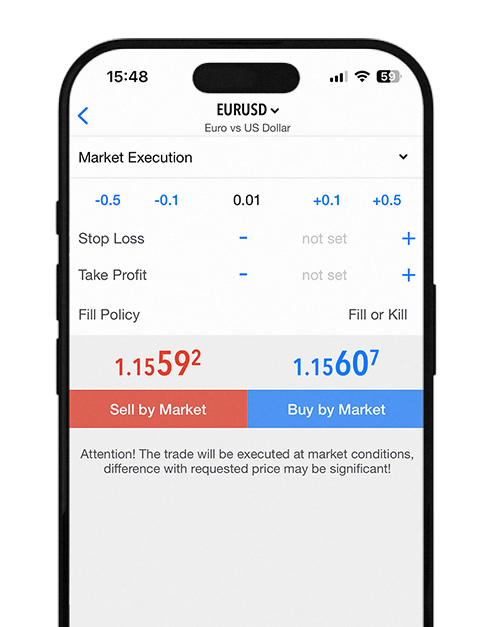
Majors, minors & exotics from 0.0 pips spread
Instant currency trading with just one click
Trade more with less — zero hidden fees
Forex Currencies Trading
Trade across 40+ Forex currency pairs
Providing access to the world's largest and most liquid market with tight spreads, starting from 0 pips on EUR/USD.
Majors, minors & exotics from 0.0 pips spread
Trade more with less — zero hidden fees
Instant currency trading with just one click
Benefit from advanced trading features
Forex currencies trading overview
Explore the trading specifications for our forex market symbols. Make informed trading decisions with our transparent trading data.
Forex Pair
Contract Size
Min. Trade Size
Max. Trade Size
Trade Session*
EURUSD
Euro vs US Dollar
100000
0.01
100
00:05-23:55
USDJPY
US Dollar vs Japanese Yen
100000
0.01
100
00:05-23:55
GBPUSD
British Pound vs US Dollar
100000
0.01
100
00:05-23:55
USDCHF
US Dollar vs Swiss Franc
100000
0.01
100
00:05-23:55
AUDUSD
Australian Dollar vs US Dollar
100000
0.01
100
00:05-23:55
* Timezone is based on (GMT+3)